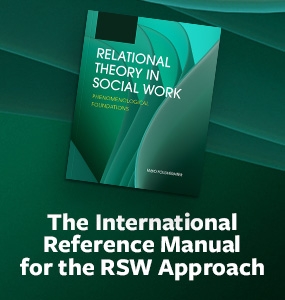Editorial
Fabio Folgheraiter
Catholic University of Milan, Italy
Human relationships are at the core of social work and it is an ethical responsibility of social workers to continue reflection on their practice and responsibilities in working with vulnerable people.
This new issue of Relational Social Work Journal offers precious insights, it includes stimulating empirical studies and theoretical contributions related to social work, and an interesting analysis of a community social work project. The first paper focuses on professional relationship between social workers and clients in judicial mandate situations. This relationship is conceptualized as «working alliance» in a specific branch of social work namely in the Flanders context the field of community supervision. The research is aimed at knowing how and if the working alliance is perceived by social workers and clients as a professional tool for joint reflection. Data stimulate important reflections on importance of working alliance in the community supervision field, and provide useful considerations and suggestions for social workers.
Next, Esaki and colleagues, from USA, present a mixed methods exploratory study on social capital within a nonprofit board within a domestic violence agency and governance effectiveness. According to the literature and in particular to the social capital theory of nonprofit governance, the research shows that the quality of social capital within the board stimulates effective governance. This interesting study invites to promote and enhance social and relational factors within nonprofit governance.
Limongelli, from Italy, contributes to reflection on relational social work presenting findings from a participatory research with young caregivers. Starting from data collected through a focus group with students from junior high schools, the article offers a preliminary reflection on young caregivers in Italy. This study highlights experiences and needs of young caregivers interviewed and motivations and consequences of caregiving activities carried out by them.
Reflecting on social work research, we can appreciate the article entitled v in which stimulating reflections on the relationship among citizenship, the life experiences of vulnerable groups and social work are proposed. Starting from three ongoing PhD research projects, the authors try to answer to the question: how could social work research promote an inclusive social work practice?
To conclude, in the section «Voices from practice» an interesting community social work project is presented. The experience highlights the important role played by the local community in facing impact of health emergency on the elderly life conditions and supporting elder people during the lockdown. The project represents an example of how community members can take care of its most vulnerable members also during unexpected crisis.




